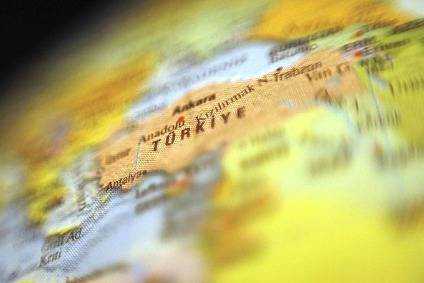
Benteler Automotive Turkey says Europe ‘should discover’ the impact of the country’s significantly lower cost levels as a major competitive advantage.
Turkey has become something of an automotive powerhouse on the edge of Europe, with a large and competitive labour force attracting nine OEMs and more than 250 suppliers to the country.

Discover B2B Marketing That Performs
Combine business intelligence and editorial excellence to reach engaged professionals across 36 leading media platforms.
However, it has faced major political upheaval in the past two years with a failed coup d’etat and the immense fallout from the migrant crisis fuelled by turmoil in the Middle East.
This uncertainty may be making OEMs hesitate before committing to Turkey, but the political situation appears to have largely calmed down, leading to the recent announcement of Presidential and Parliamentary elections this summer.
“It is true in Turkey the salary level is four times cheaper than Europe,” Benteler Automotive Turkey general manager, Cagatay Dundar told just-auto on the sidelines of the recent Automechanika Istanbul Fair. “It is another big advantage and Europe has to discover this power – they don’t know the power of Turkey on their market.
“There is a negative image given by the political side and this is of course, affecting investment levels of companies. The political situation is the political side and business is the business side. When [overseas companies] they focus on the business front, they will understand the advantage of Turkey.
“The automotive sector is the biggest sector in Turkey and in 2017 exports [were] US$28.5bn – it is the first level [largest sector]. Yes, high inflation is a problem [but] if you compare import costs to Europe and compare inflation and salary levels, we don’t see big fluctuations [differences].
“If you import components in euros it will affect added value. Because of this, most companies come to Turkey [to localise] and will be more efficient. Today unfortunately, we are getting our raw materials from European countries because we are using steel and aluminium and our supplier [is] in Europe. Of course it is affecting that level [of] our added value.”
Despite the significant number of OEMs and suppliers in Turkey, there is a relative paucity of steelmakers in the country, with those which are present unable to cover all requirements, including speciality materials.
The Ankara government realises the situation according to Benteler and is in contact with European steel producers to encourage them to invest in Turkey, while it is also aware of the crucial nature of the automotive sector to the economy.
“The government really wants to invest in the Turkish automotive industry because they know it is the biggest industry in Turkey,” added Dundar. “It is a big boat.
“We know [for example] the new Renault Clio will be produced in Turkey and the new Ford Transit – it is a big opportunity for Tier 1 suppliers and of course for us. It is [also] a big opportunity for exports.”






